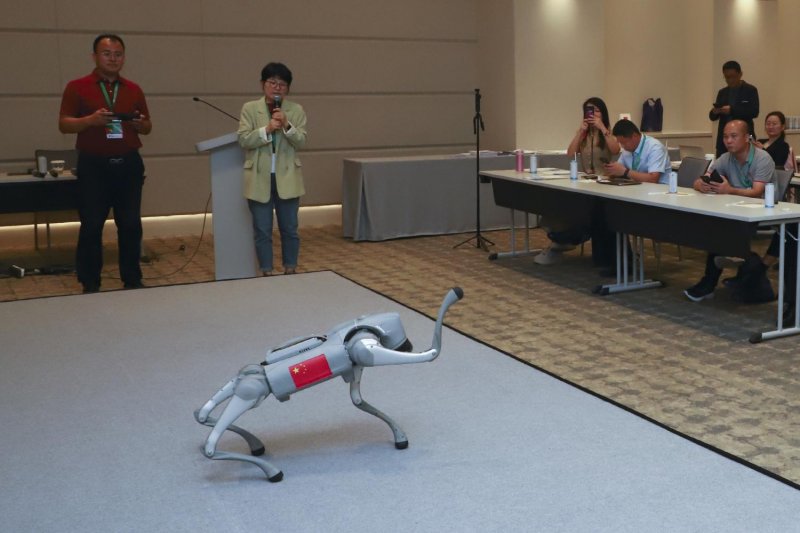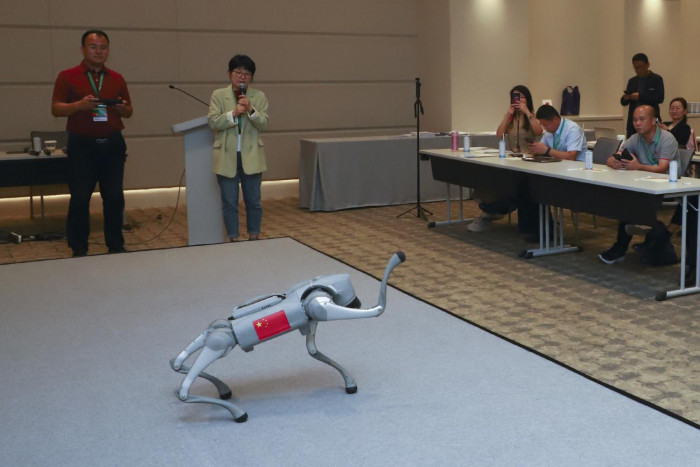PUBLISHED : 2 Oct 2025 at 05:14
Small
Medium
Large

The SX 2025 Technology Presentation from China Pavilion Beijing E Town, as the only national-level economic-technological development area in Beijing and a main gateway of innovation in China, brings its cutting-edge advancements directly to SX 2025. (Photo: Nutthawat Wichieanbut)
The Climate Change Act establishes a legal framework for achieving net zero emissions, implements carbon pricing, and enhances climate resilience, thereby having a profound impact on Thailand’s green transformation.
However, digital technology still must be developed to support emerging solutions and the trend towards carbon cost reduction, say experts at the “Climate Change and Digitalisation” forum at SX Sustainability Expo 2025.
They said selling credits abroad often yields higher returns but requires greater investment. Still, as climate impacts intensify, demand for carbon credits is expected to rise sharply, driving prices higher.
“Thailand faces mounting pressure to meet annual reduction targets as part of its commitment to the Paris Agreement. Buying carbon credits is one approach to help accelerate decarbonisation,” said Paul Connell, regional manager for Climate Change Development SEA at South Pole.
Thailand’s major emitters remain the energy, transport, and agriculture sectors. Transitioning to renewable energy, shifting to electric vehicles, and promoting sustainable farming practices have all been cited as urgent priorities, said observers.
Korakoj Sanguanpiyapan, CEO of Wave BCG, said his company focuses on climate consulting, helping organisations assess emissions, design reduction projects, and create strategies for carbon credits.
By combining digital technologies such as satellite monitoring and data analytics, businesses can track deforestation, crop health, and methane emissions from agriculture at scale — a feat that would be impossible to achieve manually across thousands of hectares.
Taweesak Ongiam, founder of ShooShok, presented a Thai-developed waste management solution that tackles food waste by turning it into compost. The initiative shows how local innovation can simultaneously address waste management and emissions reduction.
“Rather than incurring management costs, food waste can be converted into CO² credits,” he said.
Jakkanit Kananurak from Thailand’s Digital Economy Promotion Agency, said the digital economy would grow by 23.36% in the next 3-5 years, driven by the expansion of the carbon market.

